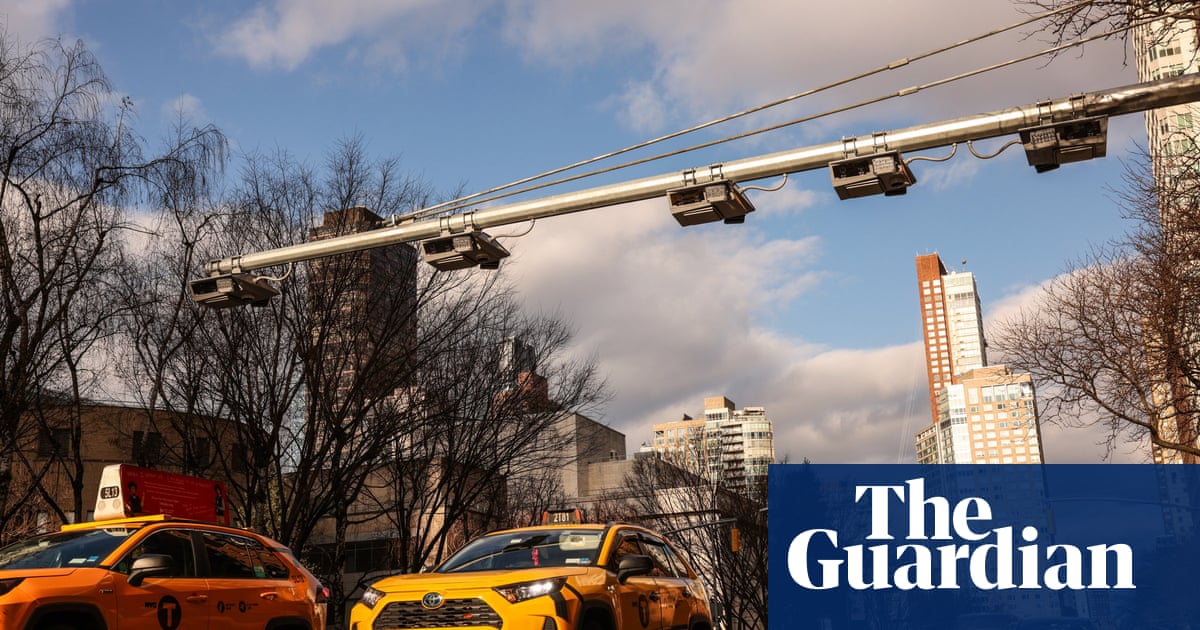US transportation secretary Sean Duffy issued a warning toNew YorkgovernorKathy Hochulon Monday saying that the state of New York “risks serious consequences” if it does notsuspend its congestion pricing program.
New York City’s congestion pricing initiative, which was approved by theBiden administrationlast year andbegan on5 January, charges a $9 toll on most passenger vehicles entering Manhattan south of 60th Street during peak hours.
Similar systems are already in some major global cities such as London and are popular with environmental groups.
In a letterdated Mondayand addressed to Hochul, theTrump administrationreiterated its demand that she halt the collection of congestion pricing tolls and gave the governor until 21 May to either certify that the collection of tolls has ceased, or provide an explanation for why its continuation does not violate federal law.
“I write to warn you that the State ofNew Yorkrisks serious consequences if it continues to fail to comply with Federal law,” Duffy wrote.
“President Trump and I will not sit back while Governor Hochul engages in class warfare and prices working-class Americans out of accessing New York City,” Duffy wrote. “The federal government sends billions to New York — but we won’t foot the bill if Governor Hochul continues to implement an illegal toll to backfill the budget of New York’s failing transit system We are giving New York one last chance to turn back or prove their actions are not illegal.”
Duffy warned that the administration could begin taking action against the state as early as 28 May if the congestion tolls remain in place, such as withholding federal funding and approvals for future transportation projects in the state.
The latest letter follows multiple deadlines previously set by theTrump administrationto cease the program.
The administration had given Hochul a deadline of 20 April and beforethat 21 March,but both times Hochul did not end the program.
New York leaders have said that the program for Manhattan was designed to reduce traffic congestion, lower pollution, and generate revenue for public transit projects and improvements in the state.
In February, the Trump administration said it was terminating the program by revoking the federal approval.
The Metropolitan Transit Authority (MTA), which operates the tolls, haschallengedthe administration’s decision in federal court and says the scheme does not violate federal law – a positionbacked up so farby a judge.
Since the program took effect, both the MTA and the governor have defended the program, asserting that it is already achieving its intended goals.
In March, Hochultouted the early successof the program, saying that “traffic is down and business is up” since the program took effect.
According to her office, traffic declined 11% in February, compared to the same period last year. That month, traffic also moved 30% faster on bridge and tunnel crossings, per the governor’s office.
Sign up toThis Week in Trumpland
A deep dive into the policies, controversies and oddities surrounding the Trump administration
after newsletter promotion
Commuters entering the zone are also reportedly saving up to 21 minutes per trip, she said.
The MTA CEO and chair, Janno Lieber,saidin March: “Congestion relief is working, cars and buses are moving faster, foot traffic is up and even noise complaints are down.”
The program, according to theNew York Times, is also delivering financially, reporting in February that the program raised $48.6m in tolls during its first month, exceeding expectations.
MTA datareleased earlier this monthalso shows that around 560,000 vehicles entered the congestion zone daily in March – a 13% drop from the roughly 640,000 vehicles the agency projected would have entered without tolling.
The agency also said in late March that the program is on track to generate$500m in revenueby the end of the year.
A March survey found that 42% of New York City residents support keeping the toll, according toNBC New York, while 35% backedDonald Trump’s attempts to squash it.
Statewide, favorability for the program is weaker, with only about one-third of people in New York state supporting the program, compared to 40% who want it halted, per NBC.
Just last week, according to theAssociated Press, a federal judge in Manhattan dismissed a number ofarguments in lawsuitsfiled by the local trucking industry and other groups attempting to block the tolling system.
